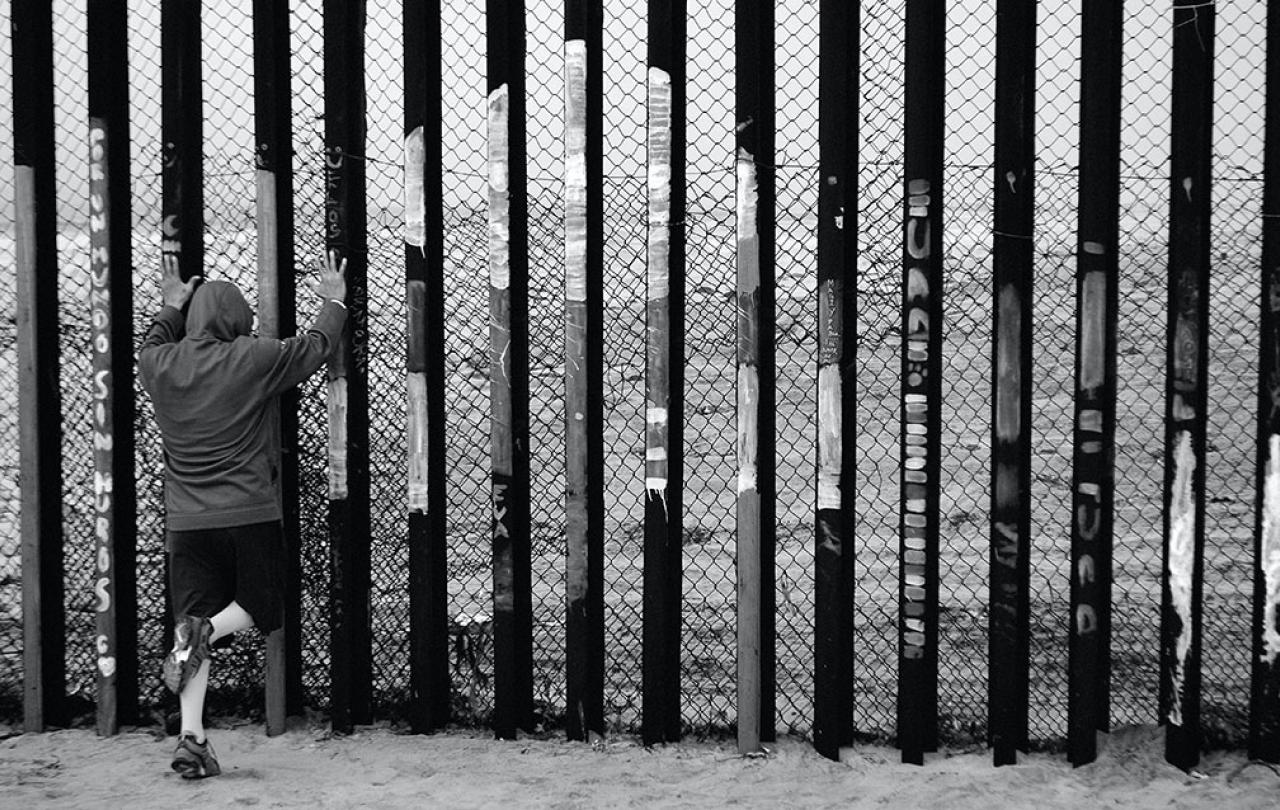
Just as they do at the beginning of each new year, this January saw the charity Open Doors descend upon the House of Commons to officially launch its World Watch List for 2023. That is, the list of the fifty most dangerous countries to be a Christian in the world this year.
As well as producing this list, the advocacy group also revealed a number: 360 million.
That’s the number of Christians who are living under extreme pressure and persecution because of their religious identity. That’s 1 in every 7 of the 2.4 billion Christians in the world right now. For statistical context, that 360 million is larger than the current population of the USA. The enormity of such numbers can be a challenge to digest, so perhaps it would be more effective to summarise the research this way - 2023 the most dangerous year to be a Christian on record.
Only a quarter of the story
It’s a powerful image: there, in the grand epicentre of British government, where a verse from the Bible is literally carved into the floor of the main entrance way, was an evening dedicated to the 360 million people for whom a spiritual alignment to that very same verse exposes them to danger and discrimination.
When we think of religious groups that are facing daily persecution, it’s likely that Christian communities aren’t at the top of our list of assumptions. And that’s relatively understandable when we’re viewing Christianity through the lens of our own Western contexts. In May, the UK is going to come to a communal standstill as we witness the Archbishop of Canterbury, the figurehead of the Church of England, place a crown on the head of our new King, thus ushering in a new phase of history. It can seem as though, as a society, the scent of Christianity is in the very air we breathe. Many of our most cherished landmarks are sites of religious significance, it’s not unusual for our local schools and hospitals to be named after Christian Saints, while our public calendars are shaped by Christian celebrations.
And yet – 360 million people.
While Christianity has a (rather recent) reputation for being a Euro-centric religion, European Christians are actually the minority, making up only one quarter of the global Christian population. We are inclined, because of our own experience of Christianity as enjoying a prominent role in public life, of having a rather narrow understanding of the global Christian reality.
A more global perspective
Christians are by no means the only faith group to face the danger of religious persecution, but year after year, they are continuing to face it on the largest scale.
The World Watch List shows that the global reality for Christians is anything but static. In 2022, Afghanistan was considered the most dangerous country to live as a Christian. However, largely due to the Taliban’s attention being lured away from its Christian population, Afghanistan has dropped to ninth place. North Korea, which is home to approximately 400,000 Christians, has thus regained its position as the most ‘brutally hostile place’ to be.
Following North Korea, the other top nine countries in the list are: Somalia, Yemen, Eritrea, Libya, Nigeria, Pakistan Iran, Afghanistan and Sudan.
Not only has this persecution seen a numerical increase, but also a significant increase in the extremity of the danger posed. Violence, imprisonment, and even death, are very real possibilities for Christians living in these countries. However, religious persecution also includes more subtle social segregation, economic discrimination and national isolation. These 360 million people are being exposed to a spectrum of pressures to denounce their Christian identity and cease living out their Christian faith.
A paradox
And yet, one of the most staggering findings that Open Doors continue to present, is that it is in these places that the Christian church is experiencing its most rapid growth. According to their extensive research, the rising danger surrounding the Christian faith doesn’t seem to be having the desired effect; stories of persistence, faith and courage are unceasing.
This pattern is not anomalous, As Brother Andrew, the founder of Open Doors, once famously reminded the world, ‘persecution is an enemy the Church has met and mastered many times. Indifference could prove to be a far more dangerous foe’.
A dangerous faith does not equate to a disappearing faith.





